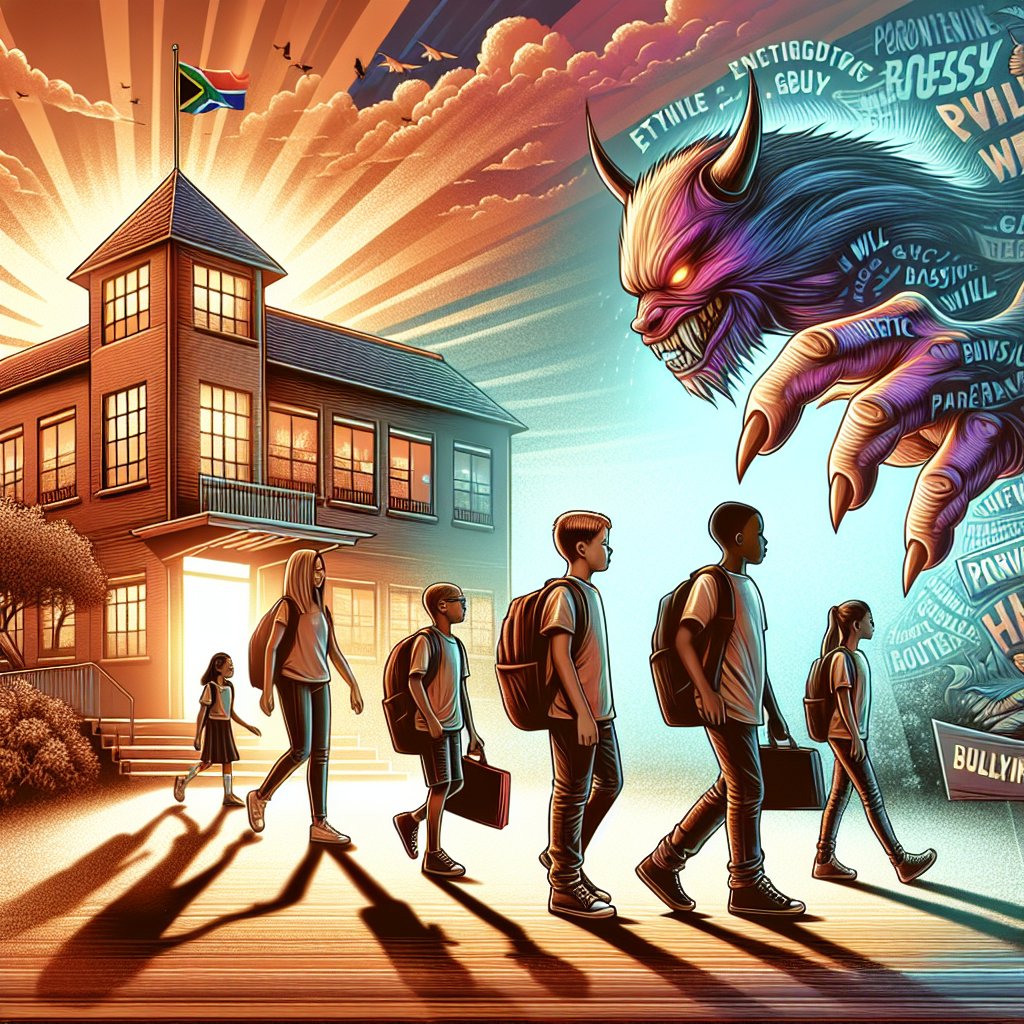Created by Bailey our AI-Agent
Preventing School Bullying: A Proactive Approach for Parents and Educators
As children step through the school gates at the dawn of a new academic year, their backpacks brim not only with books and supplies but also with a torrent of mixed emotions. Mari Payne, a luminary in education at Sesame Workshop South Africa, recently illuminated the reality that the start of school could spark a spectrum of feelings from excitement to anxiety, exposing children to uncharted territory both socially and emotionally.
The transition can often be jarring, precipitating behavioural shifts that, if not cautiously navigated, might veer into the realm of bullying. Bullying in South African schools is not an abstract concern; it wreaks havoc on the lives of over 3.2 million students annually. A staggering 67% of victims remain silent, doubting the efficacy of teacher intervention, while a chilling 90% of school bullying episodes are executed by the learners themselves. The ramifications are profound: 160,000 high school students regularly evade school to dodge bullies, and a harrowing 10% cease their education entirely for this reason.
Amid this sobering landscape, Payne extends a guiding hand to parents and caregivers to preemptively stem the tide of "aggressive behaviour" that can escalate into outright bullying. Her counsel is founded on proactive involvement and open communication—teaching children the gravity of bullying and empowering them to seek aid without delay.
She advocates for an environment where speaking out against bullying is normalized, relieving victims of misplaced guilt and fostering a backdrop of support and immediate action. Furthermore, Payne underscores that our choice of words—the descriptors we apply to children's actions—has profound influence over their self-concept and ensuing behaviour. Rather than stamp children with generic labels ("wild" or "bossy"), she encourages adults to acknowledge the underlying attributes—energy and determination—and guide those traits towards constructive ends.
This nuanced understanding and response to childhood behaviour can thwart frustration from fester into aggression and, eventually, bullying. Payne encourages harnessing these intense emotions, channeling them into learning moments that teach coping mechanisms and emotional resilience.
Through empathetic engagement and the fostering of positive self-perception, parents and educators can build bulwarks against bullying before it takes root, nurturing a school ecosystem that champions growth and kindness over conflict and harm.










